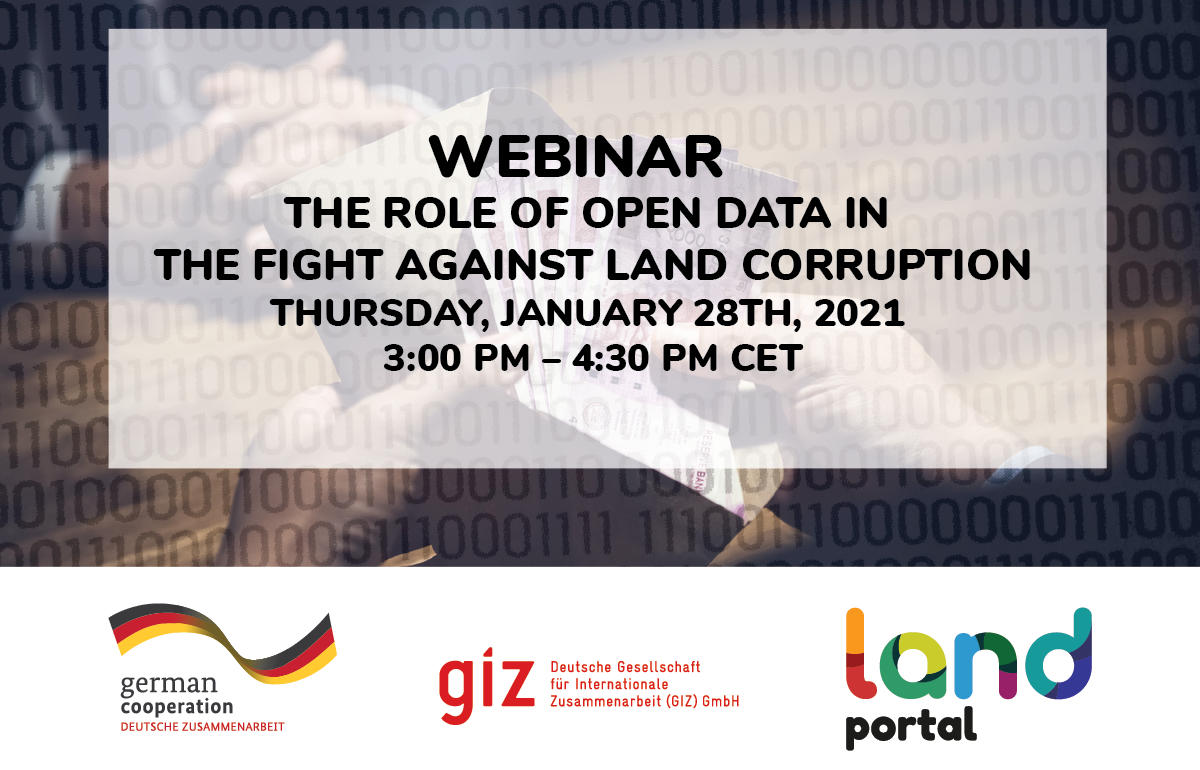Opening up land-related administrative data, combining it with data from other sources and processing and making this data available as easily accessible information for women and men equally could be a means to counteracting land corruption in land management, land administration and land allocation. But does open data and enhanced data transparency indeed help to counteract land corruption?
In order to answer this question, the Deutsche Gesellschaft für Internationale Zusammenarbeit (GIZ) GmbH with the support of the German Federal Government, commissioned the study The Role of Open Data in Fighting Land Corruption: Evidence, Opportunities and Challenges, which will be published in January 2021. Initial findings of this study suggest that the current data revolution and open data can play an important role in realizing sustainable land governance.
This webinar took place on January 28th from 3:00-4:30 PM CET (9:00-10:30 ET) to discuss the findings of this study and explore recommendations to enhance the use of open data in counteracting land corruption. The webinar brought together leading land governance, anti-corruption and open data experts to discuss what it takes for open data to have an impact on land corruption, as well as to arrive at recommendations that can guide practitioners and policy makers.
Moderator

Tim Hanstad
Chandler Foundation
Panelists

Dr. Marcello De Maria
Postdoctoral
Researcher
School of
Agriculture Policy
and Development
University of Reading

Ania Calderon
Executive Director
Open Data Charter

Ellen O. Pratt
Commissioner
Liberia
Land Authority

Dr. Andreas Lange
Senior Advisor
Rural Development
and Food Security
Deutsche Gesellschaft
für Internationale
Zusammenarbeit
(GIZ) GmbH

Aled Williams
Senior Advisor
U4 Anti-Corruption
Resource Center

